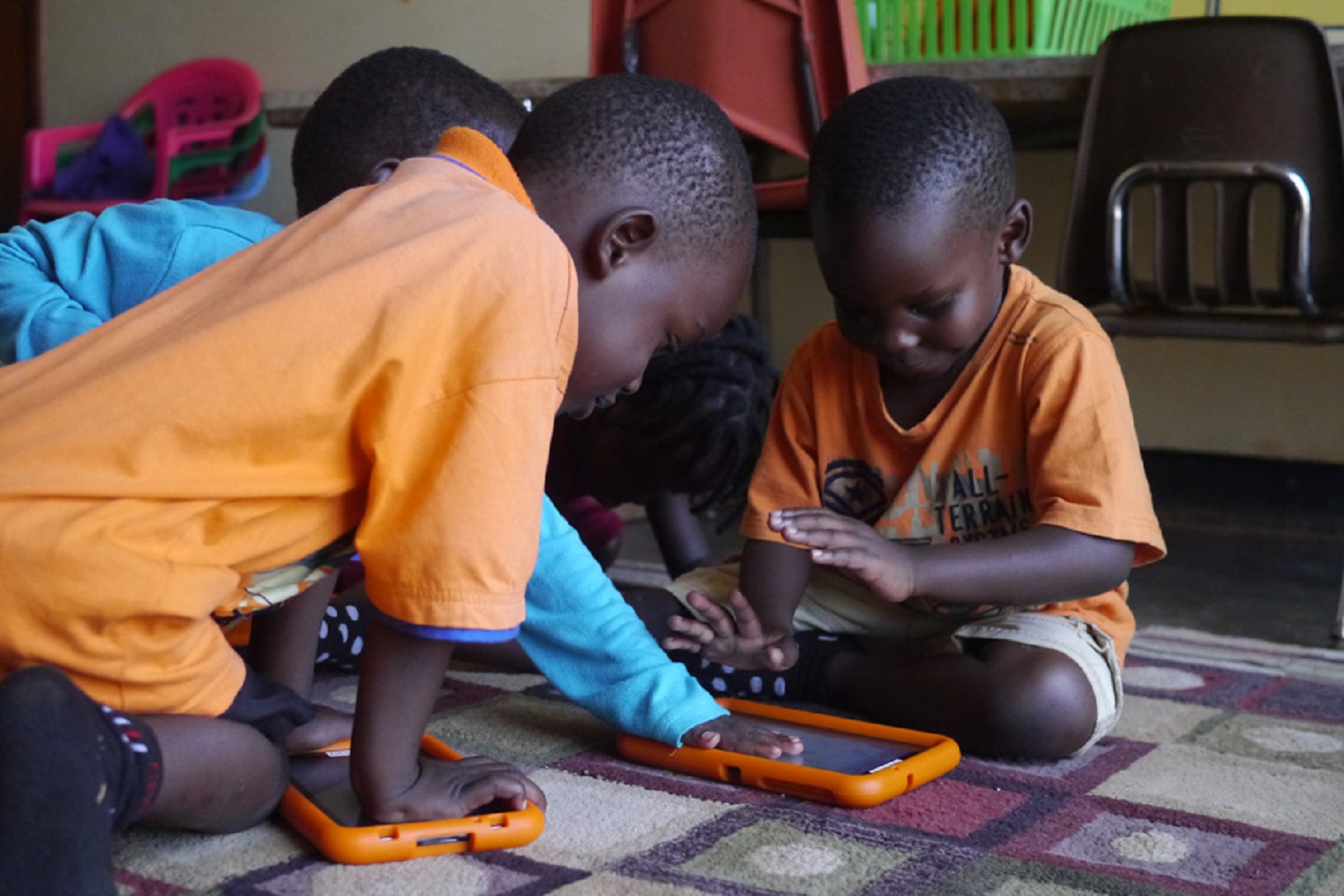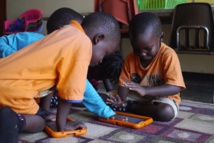For four years, Researchers from the U.S. have conducted a study with economically disadvantaged children from South Africa, Ethiopia and U.S. which demonstrates the positive effects of providing these children with tablets loaded with literacy apps. In particular, children from Ethiopia aged 4 to 11 showed a knowledge of English similar to children entering kindergarten in the U.S.
The study has been conducted by researchers at MIT (Massachusetts Institute of Technology), Tufts University, and Georgia State University for four years. Researchers have just presented the results of the first three deployments of their system, through the ONG Curious Learning, created for this purpose.
The trials, informs MIT News and echoes Tendencias21, examined a range of educational environments. One was set in a pair of rural Ethiopian villages with no schools and no written culture; other one was set in a suburban school of South Africa with a student-to-teacher ratio of 60 to 1; and the other one was set in a rural school of the U.S. with predominantly low-income students.
The system of the researchers consist of an inexpensive tablet computer which uses Android operating system. The researchers examined the literacy apps available for little children to identify several hundred that met their quality criteria. The researchers also developed their own interface for the tablets, which grants users access only to approved educational apps. The tablets were issued to children ranging in age from 4 to 11.
The researchers purposely don’t tell the children how to use the apps, because the aim is to reach 100 million children, and it would be impossible to instruct them all. They have protocols in case children didn’t know how to use them, but in Ethiopia, for example, kids turned them on within minutes.
Ethiopian children had no prior exposure to spoken English or any written language. After a year using tablets, children were tested on their understanding of approximately 20 spoken English words, taken at random from apps loaded on the tablets. More than half of the students knew at least half of the words, and all the students knew at least four.
When they are presented with strings of Roman letters in a random order, 90 percent could identify at least 10 of them, and all kids could supply the sounds corresponding to at least two of them. Moreover, 35 percent of the children could recognise at least one word in English by sight. These figures roughly accord with those children entering in a kindergarten in the U.S.
In South Africa and U.S., children improved substantially their knowledge of the words and sounds.
Another study, at the Michigan State University, has demonstrated that the schools that supplies each student with a tablet computer, as well as with the adequate support for students and teachers, see a dramatic improvement on academic performance.
The study has been conducted by researchers at MIT (Massachusetts Institute of Technology), Tufts University, and Georgia State University for four years. Researchers have just presented the results of the first three deployments of their system, through the ONG Curious Learning, created for this purpose.
The trials, informs MIT News and echoes Tendencias21, examined a range of educational environments. One was set in a pair of rural Ethiopian villages with no schools and no written culture; other one was set in a suburban school of South Africa with a student-to-teacher ratio of 60 to 1; and the other one was set in a rural school of the U.S. with predominantly low-income students.
The system of the researchers consist of an inexpensive tablet computer which uses Android operating system. The researchers examined the literacy apps available for little children to identify several hundred that met their quality criteria. The researchers also developed their own interface for the tablets, which grants users access only to approved educational apps. The tablets were issued to children ranging in age from 4 to 11.
The researchers purposely don’t tell the children how to use the apps, because the aim is to reach 100 million children, and it would be impossible to instruct them all. They have protocols in case children didn’t know how to use them, but in Ethiopia, for example, kids turned them on within minutes.
Ethiopian children had no prior exposure to spoken English or any written language. After a year using tablets, children were tested on their understanding of approximately 20 spoken English words, taken at random from apps loaded on the tablets. More than half of the students knew at least half of the words, and all the students knew at least four.
When they are presented with strings of Roman letters in a random order, 90 percent could identify at least 10 of them, and all kids could supply the sounds corresponding to at least two of them. Moreover, 35 percent of the children could recognise at least one word in English by sight. These figures roughly accord with those children entering in a kindergarten in the U.S.
In South Africa and U.S., children improved substantially their knowledge of the words and sounds.
Another study, at the Michigan State University, has demonstrated that the schools that supplies each student with a tablet computer, as well as with the adequate support for students and teachers, see a dramatic improvement on academic performance.



 English
English



